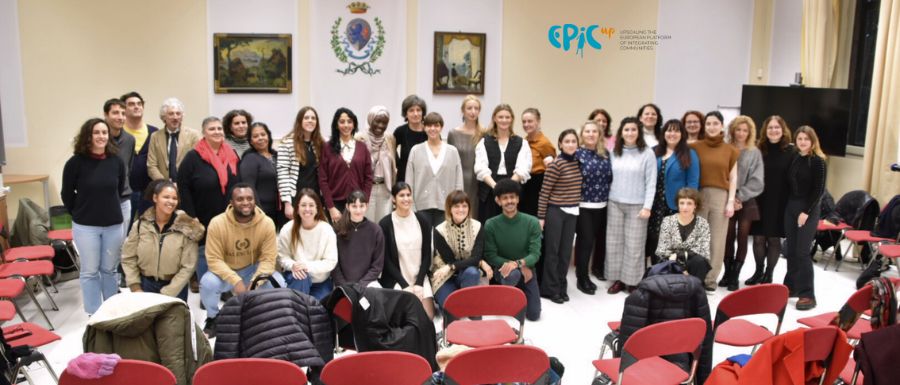ALDA participated at the Steering Committee meeting in Brescia (Italy), hosted by ADL Zavidovici, as part of the EPIC-UP project. This three-day event featured engaging discussions, impactful field visits, and future-oriented planning, all geared toward fostering sustainable and inclusive pathways for migrant integration across Europe.
Setting the Stage for Integration
The opening day focused on the project’s key objectives, emphasising the identification of good practices for migrant integration. Presentations by Community of Practice (CoP) leaders showcased innovative local initiatives, such as ADL Zavidovici’s “Sportelli e Rete” program and its components like the Refugee Desk and Prison Desk. Additionally, impactful projects from partner organisations, including KMOP’s Friendly Safe Space for Women and Girls (Greece) and EUNI’s Urban Agriculture for Sustainable Community Development (Bulgaria), highlighted diverse strategies for promoting integration.
Field Visits and Inspirational Encounters
The second day included exchanges with migrant-background Councillors from Brescia, notably Ms. Raisa Labaran e Mr. Iyas Ashkar, who shared their personal journeys to public office. Participants also explored the art exhibition “La stagione della migrazione a Nord”, which shed light on migration experiences through the lens of a Sudanese refugee artist. Meetings with municipal representatives further emphasised Brescia’s commitment to peace, inclusion, and the fight against hate speech. A key highlight has been the contribution of Mrs. Maddalena Alberti, Director of ADL Zavidovici and a Governing Board Member of ALDA, who shared her insights on fostering inclusive policies and her work in bridging gaps between native and migrant communities. The day included a meeting with Assessor Anna Frattini on projects against hate speech and with the President of Brescia City Council, Mr. Roberto Rossini, who presented the “Festival della Pace” initative”.
CoP Creation and Future Planning
The final day centered on developing CoPs and future planning, focusing on stakeholder engagement and overcoming challenges such as funding gaps and language barriers. Partners also presented a toolkit for migrant participation to support inclusive community-building efforts. The discussions underscored the EPIC-UP project’s commitment to empowering migrants as active citizens while addressing complex realities in integration.
Through this meeting, EPIC-UP reaffirmed its dedication to building adaptable and impactful strategies for migrant inclusion. By fostering dialogue, sharing best practices, and promoting participatory approaches, the project paves the way for stronger, more inclusive communities across Europe.
